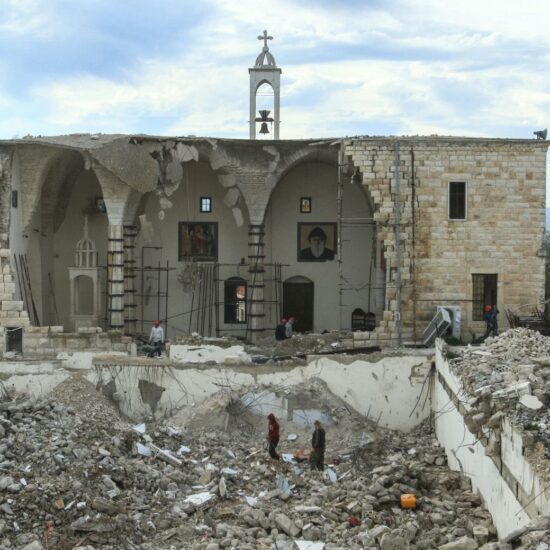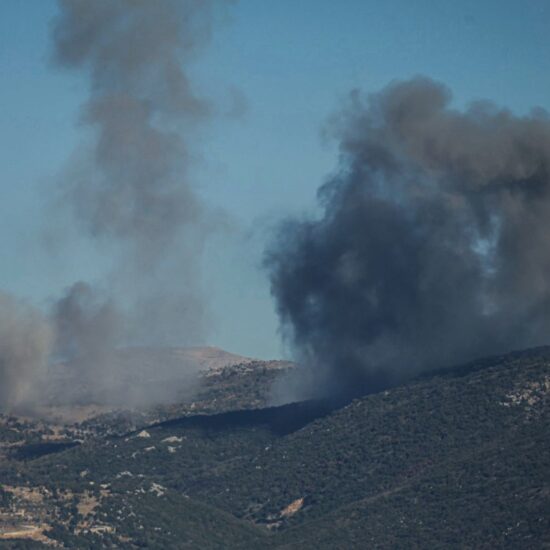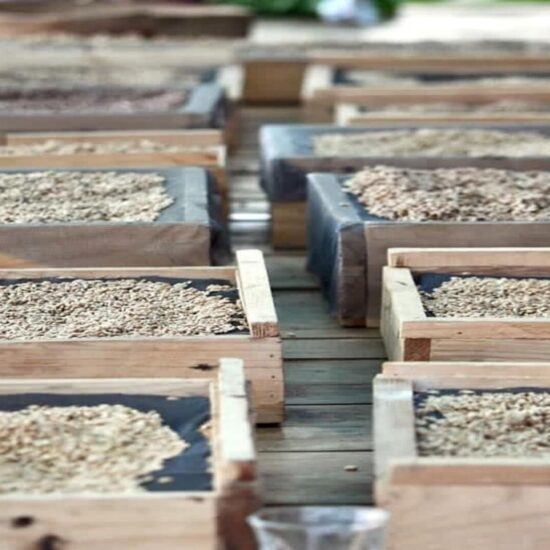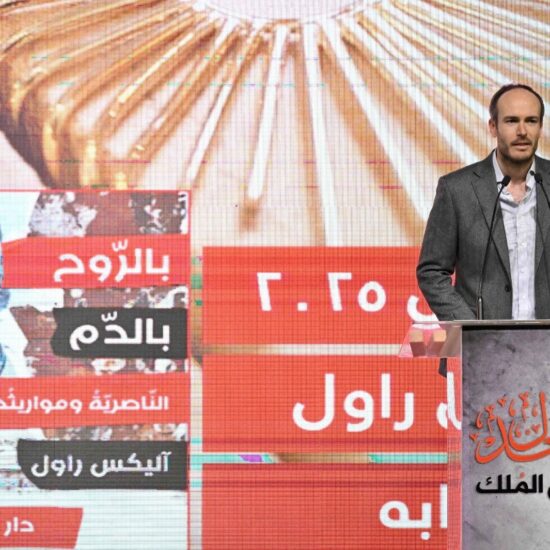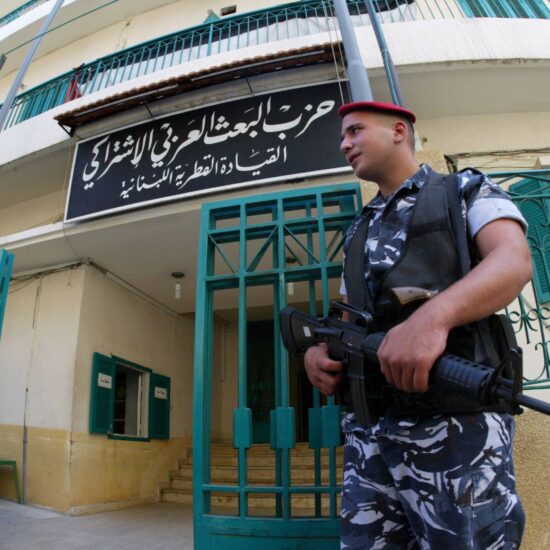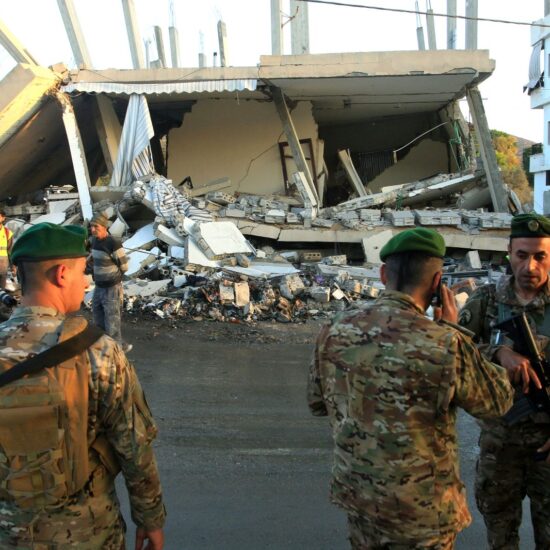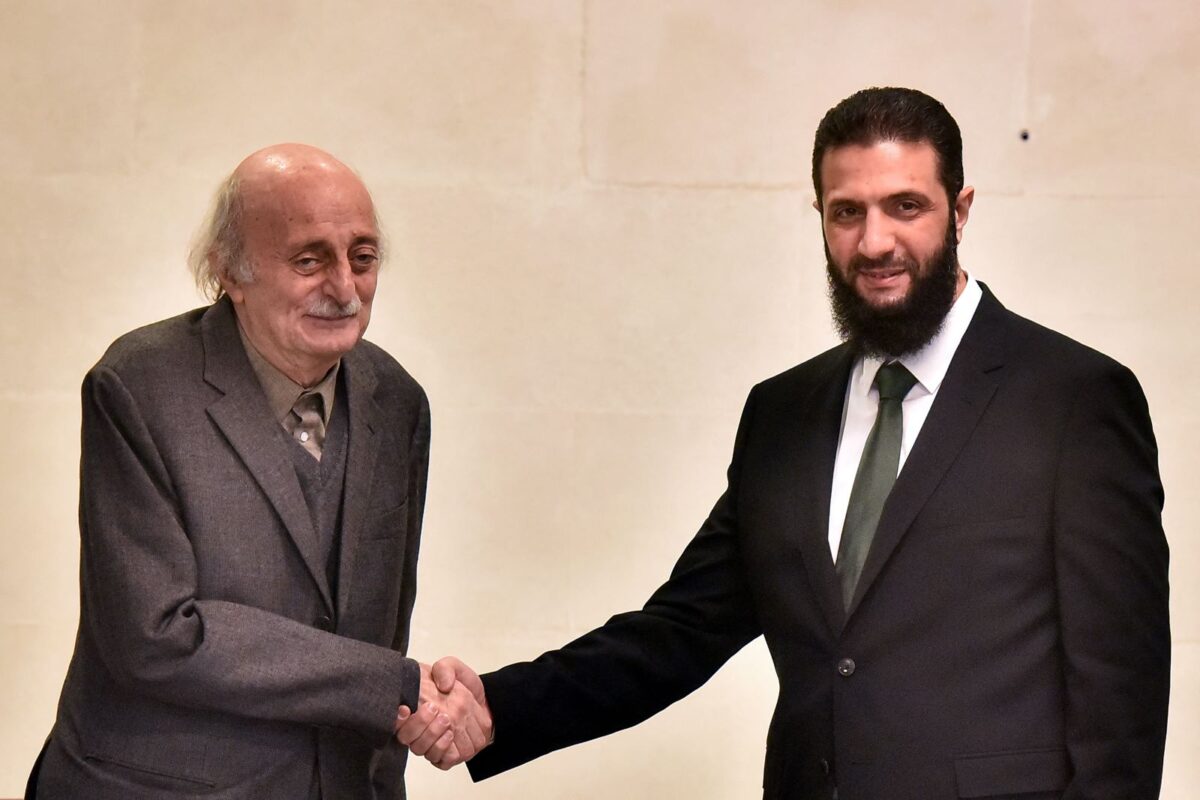
Lebanon faces significant political and economic challenges, with concerns over sovereignty, the influence of foreign powers, and ongoing border security issues, while recent developments, including the fall of Assad's regime and cautious optimism in financial markets, highlight a period of potential recovery amid the country's complex regional and domestic landscape.
A delegation from the Progressive Socialist Party (PSP), led by Walid Joumblatt, visited Damascus to congratulate Ahmad Al Sharaa on the fall of the Assad regime. The delegation, including Druze spiritual leaders, discussed fostering peace through a proposed spiritual summit between Lebanese and Syrian religious leaders. Joumblatt emphasized restoring Lebanese-Syrian relations and called for accountability for crimes committed against both peoples. He also suggested turning detention centers into museums to preserve the memory of past oppression. Joumblatt described the meeting as a positive step toward opening a new chapter in Lebanese-Syrian relations.
Al-Sharaa informed Jumblatt and the visiting delegation that Syria had been a source of concern and disruption, with its involvement in Lebanese affairs being harmful. He emphasized that Syria would no longer interfere negatively in Lebanon but would instead offer support.
Syria had been deeply involved in Lebanon’s political matters but withdrew its troops in 2005 after a 30-year presence. Al-Sharaa also criticized al-Assad’s regime and “Iranian-backed militias,” accusing them of causing division among Syrians and separating families, claiming that the process of overthrowing the regime had been carried out smoothly.
“We hope that Lebanese-Syrian relations will return through the embassies, that all those who committed crimes against the Lebanese people will be held accountable, that fair trials will be held for all those who committed crimes against the Syrian people, and that some of the prisons will remain museums of history,” Joumblatt said.
In turn, the Druze Sheikh Al-Aql Sami Abi Al-Mona said, “The people of Syria deserve this peace and deserve prosperity, as Syria is the beating heart of Arabism.” He called for holding “a spiritual summit that brings together the spiritual leaders of the two countries to enhance the spirit of reassurance.”
Al-Sharaa also met with senior US diplomats visiting Damascus on Friday, where they held a “good” and “very productive” discussion about Syria’s political transition. As a result of the meeting, the US decided to remove the bounty placed on his head.
In their first in-person meeting with HTS leaders since the group’s overthrow of President Bashar al-Assad two weeks ago, Sharaa was described as “pragmatic” by Barbara Leaf, the US State Department’s top diplomat for the Middle East. “It was a good first meeting. We will judge by actions, not just words,” Leaf, who led the US delegation, told reporters. She also emphasized that the US reiterated the need for an “inclusive” Syrian government and the prevention of terrorist groups posing a threat.
The future of the region remains shrouded in uncertainty, with questions looming about the shifting dynamics of dominating powers. Iran’s influence is expected to play a pivotal role in shaping regional politics, particularly as Hezbollah’s actions and strategies continue to garner both support and criticism. In Lebanon, the upcoming presidential election adds another layer of complexity, as the nation searches for leadership capable of navigating these turbulent times. Meanwhile, the reconstruction of heavily damaged areas such as Dahye, the South, and the Bekaa Valley poses a daunting challenge. These regions, bearing the brunt of the war, will require significant resources, coordination, and international support to restore infrastructure, livelihoods, and a sense of normalcy for their residents.
However, this could be a positive turning point for Lebanon and the region. The challenges of reconstruction and governance provide an opportunity to address systemic issues that have plagued the country for decades. A well-executed rebuilding process could strengthen local economies, improve infrastructure, and foster social cohesion in areas like Dahye, the South, and the Bekaa Valley. But for now, things remain uncertain.
In Lebanon
Army in Zahle: The Lebanese Army has taken control of the Jbailet Ain el Baida post in Kfar Zabad, Zahle, as part of ongoing efforts to strengthen security and reassert state authority across Lebanon. The post, which had been operated by the Popular Front for the Liberation of Palestine – General Command (PFLP-GC), was found to contain a large stockpile of weapons, ammunition, and military equipment.
This operation is part of a broader campaign to reclaim military positions previously held by Palestinian factions within Lebanese territory and ensure stability in the region.
Health Crisis: Lebanon is grappling with severe health challenges, as thousands need reconstructive surgeries and rehabilitation following the Hezbollah-Israel conflict. Over 4,000 people have died, and 17,000 have been injured since October, with the toll rising as more bodies are found in destroyed buildings.
Hospitals are under strain due to financial issues and a shortage of healthcare workers, many of whom have been killed or displaced. Water and sanitation disruptions also increase the risk of disease outbreaks. Despite a ceasefire on November 27, Israeli strikes continue, and Hezbollah has violated the truce in response to ongoing attacks.
Kuwait aid: Caretaker Environment Minister Nasser Yassin received a Kuwaiti Air Force plane carrying medical supplies, organized by the Lebanese community in Kuwait in coordination with the Lebanese Embassy and supervised by Ambassador Ahmad Arafa. The event was attended by Kuwaiti Embassy representatives, including its advisor and team, along with officials from the Public Health Ministry and the Higher Relief Council.
Minister Yassin, on behalf of the Lebanese government and Prime Minister, expressed gratitude to Kuwait for its solidarity with Lebanon during the ongoing crisis caused by Israeli aggression.
In The Region
Attack in Germany: Saudi Arabia expressed solidarity with Germany following a deadly car-ramming attack at a Christmas market in Magdeburg, which killed two people, including a child, and injured 68 others. The Saudi Ministry of Foreign Affairs condemned the violence and extended condolences to the victims’ families. The suspect, a 50-year-old Saudi doctor living in Germany since 2006, was arrested by police. Regional premier Reiner Haseloff described the attack as a “catastrophe” for both the city and the country.
HTS and Lebanon: Syria will not interfere “negatively” in Lebanon’s affairs, according to Hay’at Tahrir al-Sham (HTS) leader Ahmed al-Sharaa. Speaking to Lebanese Druze leaders Walid and Taymour Jumblatt, Sharaa emphasized Syria’s respect for Lebanon’s sovereignty, unity, and security. He added that Syria would maintain neutrality in Lebanon, acknowledging the country’s fears of Syrian influence. Syria and Lebanon have shared a complex history, with Syrian forces occupying northern Lebanon from 1976 to 2005.
Yemeni Houthis: The Yemeni Houthi group claimed to have shot down a US F-18 fighter jet during an attack on the USS Harry S. Truman aircraft carrier in the Red Sea. Houthi forces targeted the carrier and its destroyers with missiles and drones, resulting in the jet’s downing. The US Central Command later confirmed the jet was brought down by “friendly fire.” In response to Houthi attacks, Israeli warplanes launched airstrikes on Yemen’s Al-Hudaydah and Sanaa, marking their third wave of strikes since July.
Turkey and Syria: A video from Anadolu showed two men greeting each other, but the ministry did not disclose the location of their meeting in Damascus. Fidan had announced his visit to meet Syria’s new leaders, who ousted Bashar al-Assad after a swift offensive. This followed a visit by Turkey’s spy chief, Ibrahim Kalin, to Damascus on December 12, shortly after Assad’s fall.
Turkey has supported the opposition since 2011, backing rebel groups and hosting refugees. Fidan rejected claims by US president-elect Donald Trump that the rebels’ victory was an “unfriendly takeover” by Turkey.
What We Are Reading
What happens to Lebanon after Syria’s collapse?: Journalist Dana Hourany writes about the swift collapse of the Assad regime in Syria, which fell after rebel forces launched a decisive offensive, seizing key cities like Aleppo and Damascus. President Bashar al-Assad fled the country, ending a 14-year war that began with his violent crackdown on protests in 2011. The rebel victory, led by Ahmad Al Sharaa, exposed the fragility of Assad’s rule, despite support from Iran and Russia. This shift alters the regional balance, with Iran’s influence and Russia’s naval base at risk. For millions of displaced Syrians, the regime’s fall brings hope for returning home, though the war left a devastated economy and widespread destruction.
A test for sovereignty, a test for Lebanon: Political psychologist Ramzi Abu Ismail highlights that the recent Israeli settler incursions into Lebanese territory underscore Lebanon’s struggle to assert sovereignty, especially along its southern border. The new ceasefire agreement, while easing tensions, leaves key questions unanswered: Will the Lebanese Army take control of border security, or will Hezbollah continue to dominate the response? Abu Ismail stresses that Lebanon’s future stability depends on how the state navigates these challenges and balances authority with the influence of armed groups.
Between hope and relief: As Syrians in Lebanon reflect on the fall of the regime, journalist Rodayna Raydan writes about Abou Ahmad Al Hamwi, who fled Ain Tarma, Syria, in 2011 to work as a painter in Lebanon’s Bekaa Valley due to the war. With the fall of the Assad regime, he expresses relief, saying he can now communicate freely with his family and even return home to rebuild his life. Despite the staggering death toll of up to 620,000 and over 14 million Syrians displaced, there is a sense of optimism. Many Syrians in Lebanon share Abou Ahmad’s view, emphasizing that “nothing is going to be worse than the Assad regime,” looking forward to a brighter future for Syria.
Strong rebound on markets for Lebanon Eurobonds: Journalist Maan Barazy reports that Lebanon’s Eurobond market saw fluctuations, with a sharp rise in the BLOM Bond Index (BBI) following the collapse of Assad’s regime. The Eurobond 6.25 (2025) dropped, while the 5.8 (2020) traded higher. Positive political developments, including the presidential elections in January 2025, fueled market optimism. The Lebanese pound also rose slightly against major currencies, while dollarization slightly decreased.



